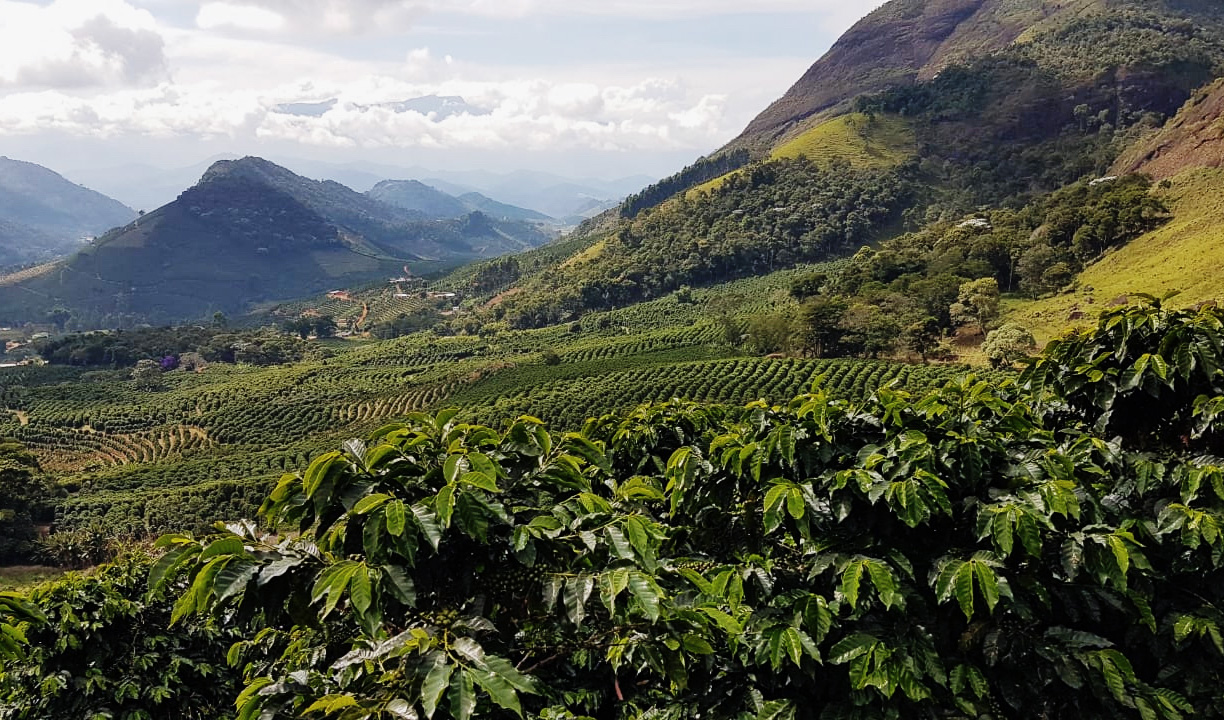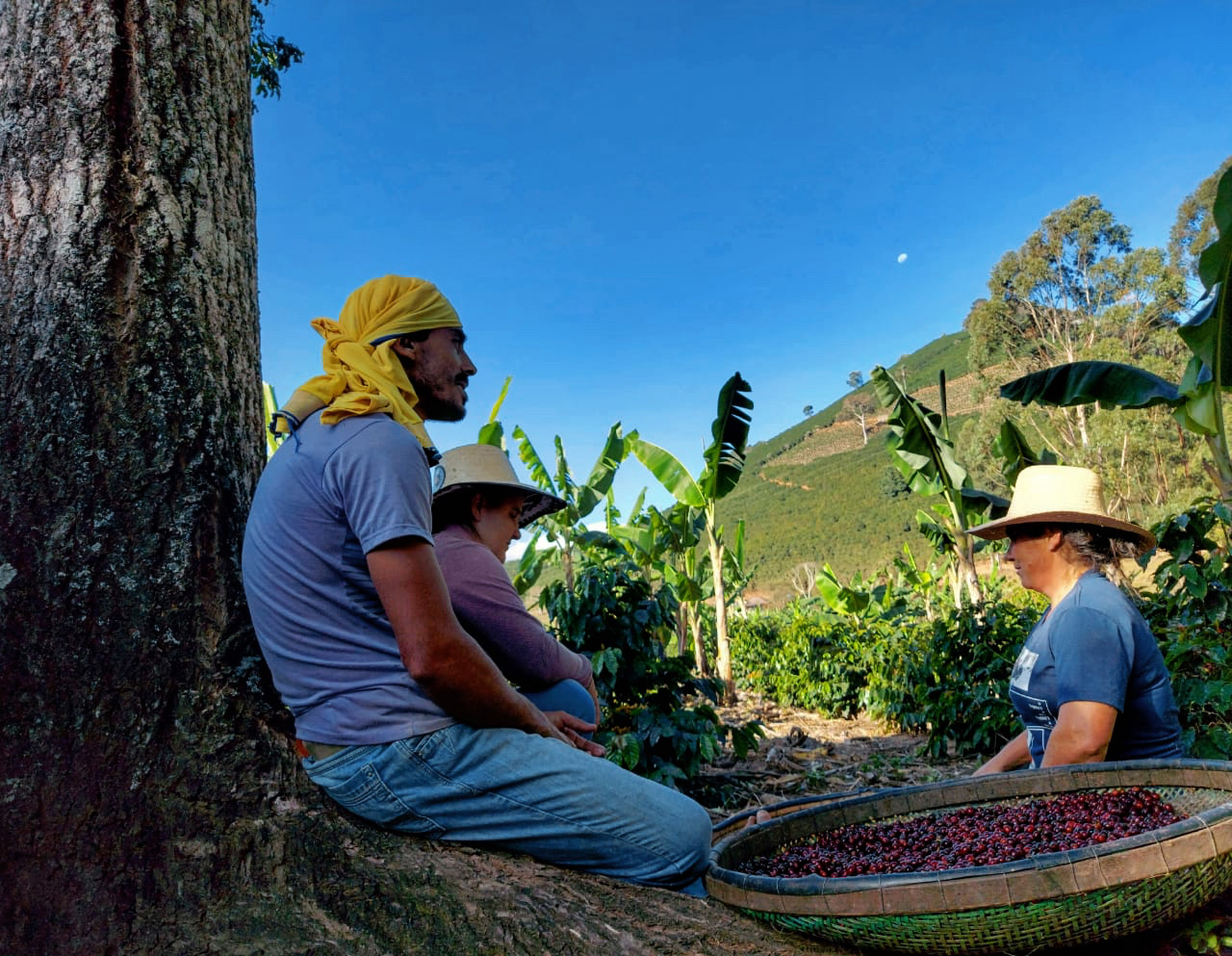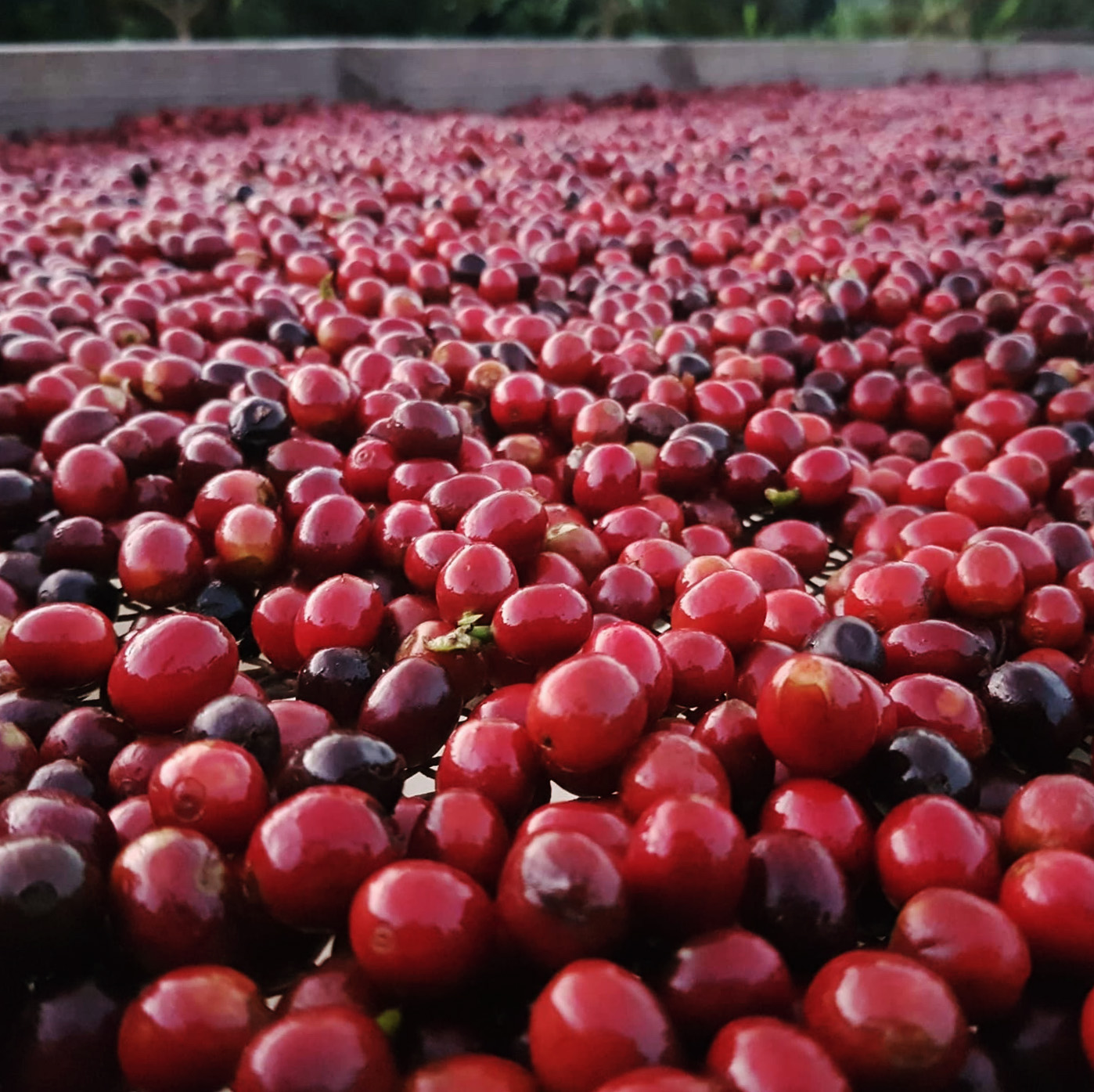Sítio Vargem Grande lies in the mountainous region of Alto Jequitibá, in Caparaó. The owner, Renato Assumpção, is a fifth-generation farmer whose family have been growing coffee in the area for over 150 years. We spoke to him with the kind help of Thiago Pinto, owner of the Alpin Coffee Club subscription, who acted as interpreter.
 Sítio Vargem Grande lies in the foothills of the Caparaó mountains
Sítio Vargem Grande lies in the foothills of the Caparaó mountains
Renato’s family began working towards specialty coffee production in 2010. They commenced the transition to organic agriculture and planted trees to fix water in the soil and establish an agroforestry system of production. It took 6 years for their work to produce good results, but since then they have won more than 30 awards for their coffee.
The transition to specialty production took an enormous amount of work but has been ‘totally, 100% worth it’, Renato says. ‘It changed the lifestyle of the entire family and our connection to the environment. We have a healthier life and are very proud to look after the forest, the water, and the soil. We feel more valued and have more dignity in the work we do on the farm.’
 The Assumpção family rest in the shade during a long day of harvesting
The Assumpção family rest in the shade during a long day of harvesting
Caparaó has very good terroir for coffee growing, but the climatic conditions mean that producing good coffee requires a lot of manual labour, Renato says. The coffee is exclusively handpicked, with multiple passes over several months. The entire family of 12 people work together during the harvest to pick the best fruit, with additional help from occasional day labourers. ‘There is no machine that can choose only ripe cherries and harvest them at the right moment,’ he says. ‘There are technologies that make the work more efficient — but only after harvest.’
 Thanks to handpicking at Sítio Vargem Grande, only ripe cherries are selected for processing
Thanks to handpicking at Sítio Vargem Grande, only ripe cherries are selected for processing
Because of his success in switching to high-quality coffee production,